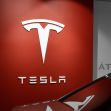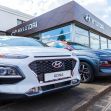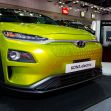Class members have agreed to settle claims that a defect caused certain Hyundai and Kia vehicles to carry a risk of spontaneous combustion.
According to the allegations, the covered vehicles were manufactured with defective anti-lock brake (ABS) modules. The modules were prone to short-circuit, which could cause the engine compartment to catch fire while the vehicle was parked or driving. The ABS defect has been the subject of several recall notices mandated by the National Highway Traffic Safety Administration (NHTSA) over the last couple of years.
The parties reached a final agreement earlier this year. The settlement would end three consolidated class actions against Hyundai Motor Co., Hyundai Motor America Inc., Kia Corp. and Kia America Inc. relating to the ABS defects. The parties asked the district court for approval of the settlement and, following a fairness hearing, the court ultimately approved of the settlement on May 8, 2023.
In agreeing to settle the case, the automakers admitted no wrongdoing.
Pursuant to the terms of the settlement, the automakers will pay around $326 million to compensate owners of more than three million vehicles from model years 2006-2021. Class members can seek compensation for the cost of repairs on affected vehicles, including reimbursement for past repairs as well as costs of future repairs. They can also seek reimbursement of incidental costs such as rental cars and towing.
If an ABS fire caused a total loss of the vehicle, class members are guaranteed “maximum value compensation” plus an additional payment of $140.
Owners will also benefit from a warranty extension of five to seven additional years covering qualifying repairs. Owners can get a one-time, free inspection of their ABS to ensure the defect is no longer present.
Class members have until July 7, 2023, to receive the additional settlement benefits beyond the extended warranty. No claim form is necessary to obtain an extension to the warranty.
Kia class vehicles covered by the settlement include the 2017-2019 Cadenza; the 2013-2015 Optima; the 2016-2018 K900; the 2006-2010 Sedona; the 2018-2021 Stinger; the 2007-2009 and 2014-2015 Sorento; as well as the 2008-2009 and 2014-2021 Sportage.
Hyundai class vehicles covered by the lawsuit include the 2006-2011 Azera; 2014-2021 Tucson; 2007 and 2017-2018 Santa Fe; 2013-2015 and 2017-2018 Santa Fe Sport; 2019 Santa Fe XL; 2007-2008 Entourage; 2006 Sonata, 2007-2010 Elantra; and the 2009-2011 Elantra Touring. The settlement also covers model years 2019-2021 Hyundai Genesis G70, 2015-2016 Genesis, and 2017-2020 G80.
The ABS lawsuit is not the only class action these manufacturers have faced in recent years. In 2019, Hyundai and Kia agreed to pay customers $758 million to settle claims that a number of vehicles were built with engines prone to sudden failure and might cause the cars to burst into flames.






